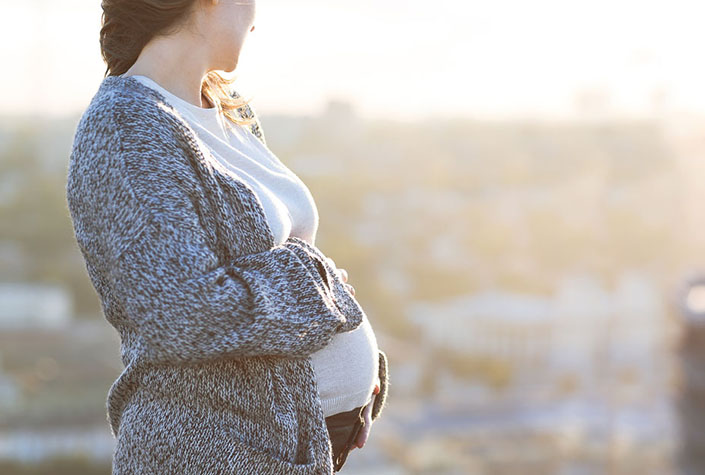Pregnancy in the city: Air pollution can alter gene expression in placenta

Polluted air contributed to the deaths of more than 6.6 million people worldwide in 2019. It accounts for around 20 percent of newborn deaths globally, mostly due to preterm birth and low birth weight.
Because of this, it is crucial that researchers and policymakers working to improve public health understand how different aspects of various types of air pollution and their associated biological responses affect fetal development.
To add to this understanding, researchers at Texas A&M University and other institutions conducted a study of air pollution’s effects on fetal development in an experimental model.
In the study, published in the journal Toxicological Sciences, recent Texas A&M School of Public Health doctoral candidate Jonathan Behlen, associate professor Natalie Johnson and colleagues analyzed the effects of exposure to different concentrations of ultrafine particles (UFPs) on fetal development and how exposure affected expression of certain genes in the placenta.
Particulate matter is a major type of air pollution that consists of particles suspended in the air. The smallest of these particles, UFPs, are smaller than 100 nanometers. A growing body of evidence is pointing to UFPs having harmful effects during pregnancy; however, there is less certainty about what mechanisms are involved in these adverse outcomes.
The researchers analyzed the effects of UFPs in an experimental animal model. Pregnant models were placed in three groups, one with filtered air, one with low dose UFPs and one with high dose UFPs.
The models were exposed to a mixture of UFPs typically found in cities. The researchers then measured placentas and fetuses of pregnant female models and analyzed changes in gene expression from placental tissues.
Specifically, the researchers found altered expression of genes responsible for antioxidant, inflammatory and lipid transport activities.
Behlen, Johnson and colleagues found that the low dose group had notable reductions in fetal and placental length and decreasing trends in fetal weight for both male and female fetuses. They also found changes in expression for multiple genes.
The changes in gene expression were higher in the low dose group than the high dose group and were greater in female fetuses than male ones. Their analysis also found increased expression of antioxidant and inflammatory genes in fetuses of both sexes in both dose groups as well as disruptions in genes responsible for lipid metabolism.
Changes to how these genes are expressed could affect bodily processes in a way that increases the risks of adverse pregnancy outcomes like preeclampsia.

